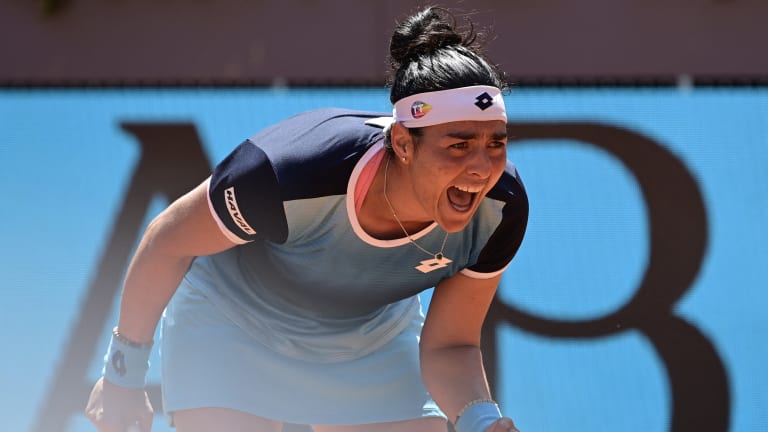Madrid, Spain
By learning from losses, Ons Jabeur reaches her biggest final in Madrid
By May 05, 2022Madrid, Spain
After final-round heartbreak, Casper Ruud takes his biggest step forward yet in Madrid
By May 04, 2025Madrid, Spain
Casper Ruud captures first Masters 1000 title of career in Madrid
By May 04, 2025Madrid, Spain
Aryna Sabalenka's Madrid win makes a bigger title in Paris look more possible than ever
By May 03, 2025Madrid, Spain
Aryna Sabalenka claims third Madrid title by leveling head-to-head with Coco Gauff
By May 03, 2025Madrid, Spain
Jack Draper vs. Casper Ruud: Where to Watch, Madrid Preview, Betting Odds
By May 03, 2025Madrid, Spain
Jack Draper closes out Lorenzo Musetti in another dazzling display to reach Madrid final
By May 02, 2025Madrid, Spain
Casper Ruud reaches final in Madrid, now a win away from biggest title of career
By May 02, 2025Madrid, Spain
Aryna Sabalenka vs. Coco Gauff: Where to Watch, Madrid Preview, Betting Odds
By May 02, 2025Madrid, Spain
Jack Draper vs. Lorenzo Musetti: Where to Watch, Madrid Preview, Betting Odds
By May 01, 2025By learning from losses, Ons Jabeur reaches her biggest final in Madrid
“I’m still really looking forward to what I can bring,” the 27-year-old said, after a resounding 6-2, 6-3 victory over Ekaterina Alexandrova sent her into her first WTA 1000 final.
Published May 05, 2022
Advertising
Advertising

Jabeur is into her first Masters 1000 final in Madrid after defeating Alexandrova 6-2, 6-3.
© AFP via Getty Images